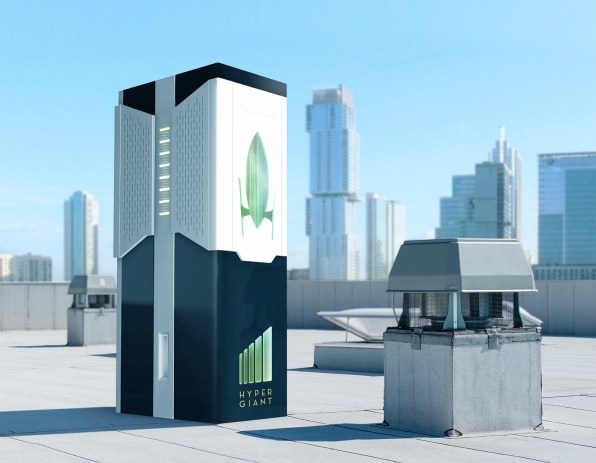- 28 Jun 2019 13:36
#15014739
To clarify, from the previous post of mine....
---
https://newatlas.com/methane-emissions- ... ria/60351/
Manipulating gut microbes in livestock could cut their methane emissions
ENVIRONMENT
Michael Irving
Michael Irving
5 hours ago
An audio version of this article is available to New Atlas Plus subscribers.
More audio articles

Researchers have investigated the gut microbes of sheep to find ways to reduce agricultural methane emissions(Credit: bogdan.hoda/Depositphotos)
Fossil fuels cop the brunt of attention for reducing climate-changing emissions, but they're far from the only culprit – livestock like sheep and cows are responsible for huge amounts of methane being released into the atmosphere. Now, an international team of researchers has analyzed the gut microbes of different sheep and found clues that may help us curb the problem.
While carbon dioxide is the most common greenhouse gas being emitted today, methane makes up for its smaller amounts by being more potent. Though it only accounts for 10 percent of emissions in the US, the gas can be up to 28 times more damaging, thanks to its prowess at trapping heat.
Methane is a by-product of coal, gas and oil processing, but the biggest source comes from the burps and farts of farm animals. And considering there are over a billion cattle in the world and about that many sheep as well, that's a lot of gassy animals warming up the planet.
So researchers from Monash University, AgResearch, and the Universities of Otago, Illinois and Hokkaido investigated how to reduce the methane emissions where they begin – in the stomach of these animals.
The methane released in a hearty fart isn't actually produced by the animal itself – blame it on the microbes in the gut. As they break down the animal's food they release methane, which then builds up until it's released out of one end of the digestive tract or the other.
The researchers on the new study looked at the microbes in the guts of two groups of sheep, one that produced high amounts of methane and one with low emissions. The biggest difference between the microbiomes of the two groups were in the bugs that consumed hydrogen.
In high methane emitters, a group of microbes called methanogens – which eat hydrogen and produce methane – were the most dominant. Unsurprisingly, in low emitters the more common bugs were those that didn't produce methane, including acetogens, fumarate, nitrate and sulfate reducers.
Of the bugs that produced hydrogen, the team found that Clostridia were the most active, while a group called Ruminococcus albus was seen to alter its metabolism depending on the hydrogen levels in the sheeps' guts.
Armed with this information, scientists could change up the types of food given to livestock in order to manipulate their gut microbiomes and reduce the amount of methane released into the atmosphere.
"Controlling the supply of hydrogen to the methanogens will lead to reduced ruminant methane emissions and allow us to divert the hydrogen towards other microbes that we know do not make methane," says Chris Greening, an Associate Professor of Monash University's School of Biological Sciences who led the study. "We're excited about this research because it has strong potential to lead to new strategies that slow agricultural methane emissions, which will vital for the ongoing health of the planet and sustaining economies."
In a similar vein, other studies have found that feeding livestock certain types of seaweed or tropical leaves can lead to reduced methane emissions.
The research was published in the International Society for Microbial Ecology Journal.
Source: Monash University
Want a cleaner, faster loading and ad free reading experience?
Try New Atlas Plus. Learn more
We recommend
Powered by
TAGS #AGRICULTURE #ANIMALS #EMISSIONS #GREENHOUSE EMISSIONS #GREENHOUSE GAS EMISSIONS #GUT BACTERIA #HOKKAIDO UNIVERSITY #METHANE #MICROBES #MONASH UNIVERSITY #NEW ATLAS AUDIO #UNIVERSITY OF ILLINOIS #UNIVERSITY OF OTAGO
SHARE THIS ARTICLE
TOPHOMEABOUTCONTACTPRIVACYTERMS & CONDITIONSADVERTISEFAQ
COPYRIGHT © GIZMAG PTY LTD 2019
---
https://newatlas.com/methane-emissions- ... ria/60351/
Manipulating gut microbes in livestock could cut their methane emissions
ENVIRONMENT
Michael Irving
Michael Irving
5 hours ago
An audio version of this article is available to New Atlas Plus subscribers.
More audio articles

Researchers have investigated the gut microbes of sheep to find ways to reduce agricultural methane emissions(Credit: bogdan.hoda/Depositphotos)
Fossil fuels cop the brunt of attention for reducing climate-changing emissions, but they're far from the only culprit – livestock like sheep and cows are responsible for huge amounts of methane being released into the atmosphere. Now, an international team of researchers has analyzed the gut microbes of different sheep and found clues that may help us curb the problem.
While carbon dioxide is the most common greenhouse gas being emitted today, methane makes up for its smaller amounts by being more potent. Though it only accounts for 10 percent of emissions in the US, the gas can be up to 28 times more damaging, thanks to its prowess at trapping heat.
Methane is a by-product of coal, gas and oil processing, but the biggest source comes from the burps and farts of farm animals. And considering there are over a billion cattle in the world and about that many sheep as well, that's a lot of gassy animals warming up the planet.
So researchers from Monash University, AgResearch, and the Universities of Otago, Illinois and Hokkaido investigated how to reduce the methane emissions where they begin – in the stomach of these animals.
The methane released in a hearty fart isn't actually produced by the animal itself – blame it on the microbes in the gut. As they break down the animal's food they release methane, which then builds up until it's released out of one end of the digestive tract or the other.
The researchers on the new study looked at the microbes in the guts of two groups of sheep, one that produced high amounts of methane and one with low emissions. The biggest difference between the microbiomes of the two groups were in the bugs that consumed hydrogen.
In high methane emitters, a group of microbes called methanogens – which eat hydrogen and produce methane – were the most dominant. Unsurprisingly, in low emitters the more common bugs were those that didn't produce methane, including acetogens, fumarate, nitrate and sulfate reducers.
Of the bugs that produced hydrogen, the team found that Clostridia were the most active, while a group called Ruminococcus albus was seen to alter its metabolism depending on the hydrogen levels in the sheeps' guts.
Armed with this information, scientists could change up the types of food given to livestock in order to manipulate their gut microbiomes and reduce the amount of methane released into the atmosphere.
"Controlling the supply of hydrogen to the methanogens will lead to reduced ruminant methane emissions and allow us to divert the hydrogen towards other microbes that we know do not make methane," says Chris Greening, an Associate Professor of Monash University's School of Biological Sciences who led the study. "We're excited about this research because it has strong potential to lead to new strategies that slow agricultural methane emissions, which will vital for the ongoing health of the planet and sustaining economies."
In a similar vein, other studies have found that feeding livestock certain types of seaweed or tropical leaves can lead to reduced methane emissions.
The research was published in the International Society for Microbial Ecology Journal.
Source: Monash University
Want a cleaner, faster loading and ad free reading experience?
Try New Atlas Plus. Learn more
We recommend
Powered by
TAGS #AGRICULTURE #ANIMALS #EMISSIONS #GREENHOUSE EMISSIONS #GREENHOUSE GAS EMISSIONS #GUT BACTERIA #HOKKAIDO UNIVERSITY #METHANE #MICROBES #MONASH UNIVERSITY #NEW ATLAS AUDIO #UNIVERSITY OF ILLINOIS #UNIVERSITY OF OTAGO
SHARE THIS ARTICLE
TOPHOMEABOUTCONTACTPRIVACYTERMS & CONDITIONSADVERTISEFAQ
COPYRIGHT © GIZMAG PTY LTD 2019
















 - By Rancid
- By Rancid - By wat0n
- By wat0n - By Tainari88
- By Tainari88